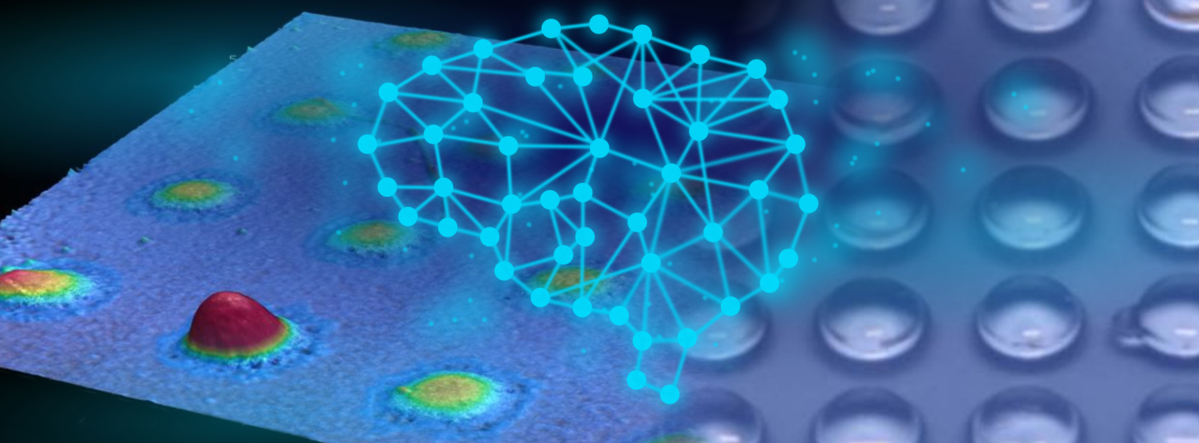Machine learning and high-throughput synthesis for the design of responsive materials
Stimuli-responsive materials capable of responding to changes in their surrounding environment are important in different scientific fields, including biotechnology, medicine and robotics. The large parameter space of material composition, processing conditions, stimuli, or different responses offers great potential for the high-throughput materials discovery but also poses a challenge due to the incompatibility of most traditional methods. To this end, high-throughput production in a facile, inexpensive and fast manner on a Droplet Micro-array Platform is combined with automated optical imaging and feature driven machine learning models to predict structure-function relationships (or the structure-response efficiency) and to suggest new “most informative” experiments to expand the generated database. Examples are hydrogels/organogels of multiple monomer building blocks and their UV sensitivity/stability and pH dependent interaction (swellability) with liquids. Moreover responsive interfaces with physiological systems, e.g. in form of biomaterials and cells as well as printed electronics for soft-robotics are interesting responsive systems which can be explored by screening tools. To be used in such applications, materials (in particular soft hydrogels or organogels) require a multitude of properties, incl. interaction with liquids, swelling, degradation, UV-responsive properties or UV-stability, adhesive properties, conductivity, biocompatibility. A predictive machine learning model, trained on a multitude of design parameters and an even larger number of their combinations, can essentially contribute to the fast and precise fine-tuning of a responsive material composition and optimal processing conditions.
| Name | Institute |
|---|---|
| Pavel Levkin | Institute of Organic Chemistry (IOC) |
| Pascal Friederich | Institute of Theoretical Informatics (ITI) |
| Patrick Reiser | Institute of Theoretical Informatics (ITI) |


